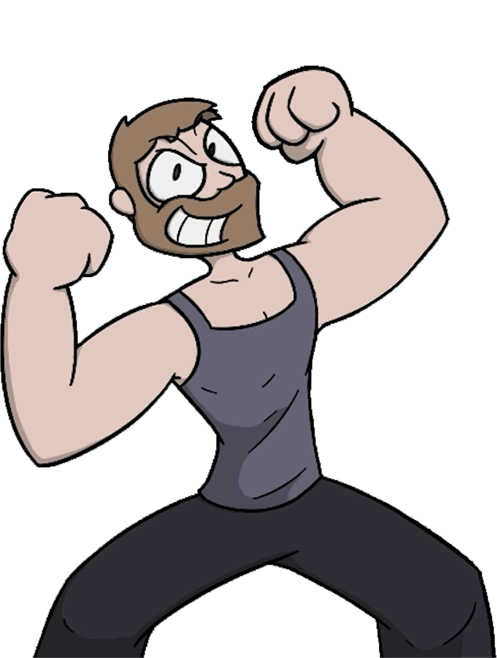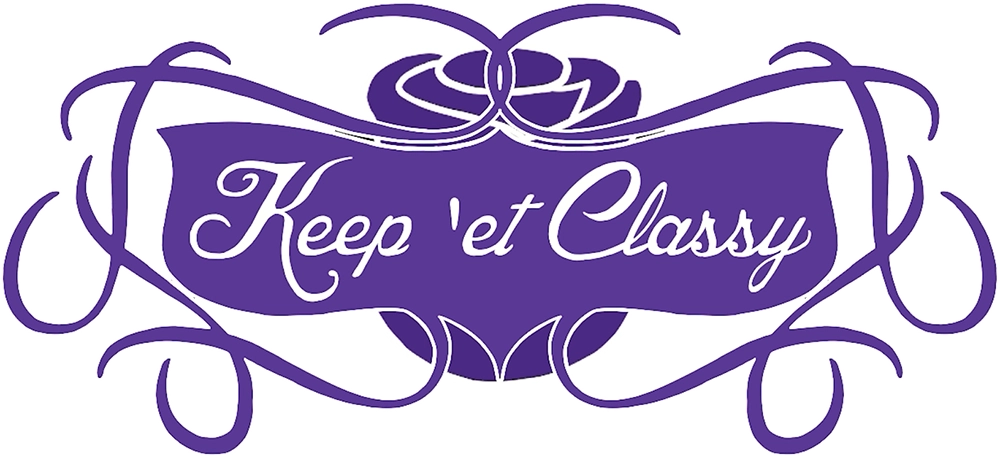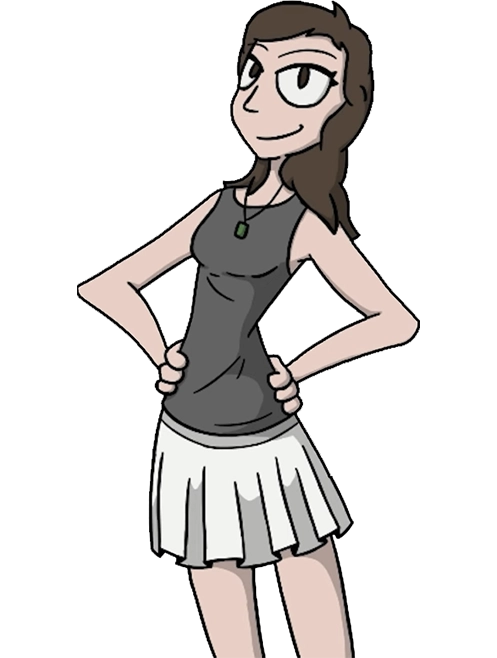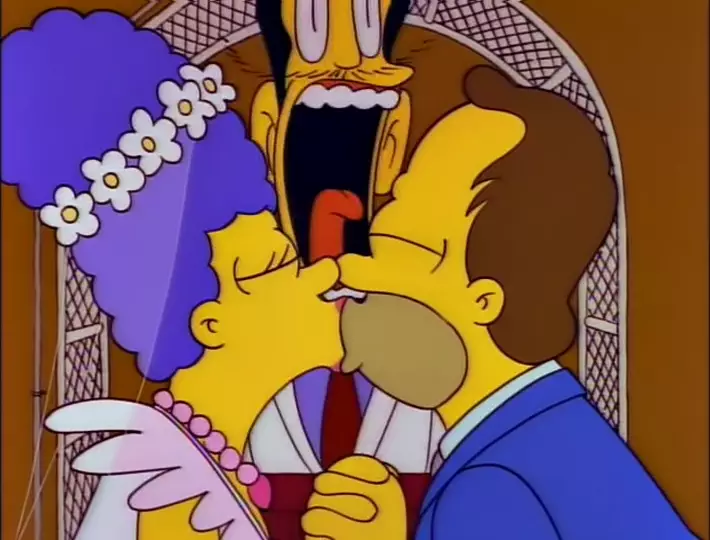My Recollection
Gulp’n’Blow. I’m from the Alabama chapter. He did that on purpose.
There’s this mythical king of pre-Corinth called Sisyphus and he was a bit of a cunt. He killed foreigners and guests, upsetting Zeus, and then proceeded to trick his way out of a variety of punishments and deaths. Now fed up, Zeus came up with a suitable punishment for the king, a real belter, Sisyphus was doomed to push an enchanted boulder up a hill. Just as he reached the top, just as Mr Clever’s way out seemed in sight, it would roll back down, and he’d start again. There are subsequent interpretations that take different positions, but his name has come to us as a word for any task that is a combination of very hard and frustratingly futile.
Few would, or even could, claim to have experienced something that would approach the torment of the gods, but I, through my depressing work history, can shout this claim to the sky. One job in particular was the true burden of Zeus’s cruelty.
Employment spans a continuum, with professions that require years of specialised training at one end, and low to zero skill labouring at the other. Then there’s setting up and taking down the tents for the various markets Brisbane has around. You’ve probably got things like this in your town. Rows of tents people can rent to peddle their wicker speculums and full release reiki. This was a negative skill job, even the Lowes encrusted ectomorphs in the unskilled labouring section had to use tools. All we did was pop the little button that locked the tent’s extendo-legs in whatever position they were at the time. Being a high school graduate made me wildly overqualified, but it also meant I could work a bit drunk, so I called it even.
I’ve been exposed to a lot of weirdos in my life, enough that I’ve always thought I should be able to develop an if not comprehensive taxonomy of them, then at least a mostly full Pokedex. The years have been unkind to this theory. Each dazzling example will share just enough features with another to taunt me into thinking I’m on to some kind of Unified Theory, only for some subsequent aberrant behaviour to ruin everything. Perhaps the goal itself is flawed. Chasing an ordered understanding of the deranged like a man trying to find the corner of a round room. The oddity I worked with at the stalls was a clue that I’d been wasting my time.
One of the crazier things about top-tier loons is that they can dress themselves and also bother to. I’m always impressed by that. There’s a video online of a woman at a Lincoln, Nebraska town hall meeting. She gets up to address a local ordinance about protecting the gays and proceeds to go on a 5-minute rant that begins, BEGINS, with a line about how the creators of the reality show Winter Wipeout–known gays, bis, and orgiers–created the game show to watch straight people perish. It gets even worse from there, but the thing is, she’s wearing clothes and a hat and stuff in spite of being a diagnosed schizophrenic. I always thought that a certain level of madness just precluded pants, let alone a coherent outfit, but that’s me applying mind logic to the round room again. They’re like the Daywalkers of the madhouse.
My pants-wearer said he was a chemical engineering student at university, but also said he didn’t eat anything with anti-oxidants in it as oxygen was important for humans. He had the face of someone playing a junkie on a TV show who didn’t want to lose all the weight and he clearly cut his own hair. The resulting creature looked like Sid Haig in Spider Baby with a hairy Mondrian geometric stapled to the back of his head. He took every instruction like it was a threat, and I saw him eat abandoned leftovers from cafes and benches on more than one occasion.
In the firmer parts of my taxonomy, there are a few basic categories of weirdo. They usually differ in the amount of energy they output. Some have that agitated, Beavis-y quality to them, while others always look a little sedated. Then there’s the basic split between “ha-ha” weirdo and “uh-oh” weirdo. Spiderbaby was a Slowbro with hints of uh-oh. No definite threat, just an absence of any softening behaviours, a kind of neutrality of basic manner that registers as alien to the primate mind. Until one day.
We were lowering a tent when he decided to pipe up. “You know, Gabe…” No, I don’t. Earlier today I saw you complain that the person whose leftover chips you were eating had opted for sour cream, so no, I don’t have an earthly clue. He had paused, not to work, but to let his next statement stand alone. “I’m becoming quite racist.”
Nobody says this. Racists don’t say this. Racists just racist at you because their racism is the norm that requires no noun. Sometimes it’s with the expectation that you’ll respond favourably, sometimes it’s done as a challenge. The Spiderbaby did neither of these. He just opined it to the air as though it were the tail end of a soliloquy that had been playing on another stage.
This is the thing about the mad. I’m prepared for the racists, whatever variety, because there’s at least a broken logic at work. Here there was just the infinite length of a round room and a large sign saying, “FIND THE CORNER” hanging over a menacing countdown. The racists expect a response of some sort, what the hell was I supposed to say to this and what did the Spiderbaby expect?
Congratulations? Are there debutante balls for this sort of thing? Does Hallmark produce a card to celebrate your descent into ethnic prejudice? These aren’t the kinds of things one should be thinking but it’s the inevitable result of talking with the mad. They say things that miss so many parts you wind up wandering into the impossible geometry of their own thoughts in search of an explanation of the blivet you’ve just been handed.
The answer to all this was, of course, nothing. Why isn’t the right question, none of them are, the closest is unpronounceable by humans. His next sentence was “It’s mostly Koreans, god I hate these tents.”
I decided to fake needing to pee and go buy a shot.
The Episode.
Little fiction will spend precious time explaining every goddamn thing. Some of these omissions are things that are truly unnecessary, we seldom need to see our characters shit, and some things are impossible, like warp drive. This natural propensity for gaps gives narratives some wiggle room they don’t technically have. Audiences will fill these spaces with a placeholder idea—a trope, broader cultural concept, or genre trained expectation—that would vanish if looked at directly. Love is a good example. It makes sense only when felt, so explanations seldom work as they operate on logic circuits hormone driven emotions don’t.
The recent Watchmen series demonstrated how well this works by using it when it makes absolutely no sense. Doctor Manhattan is a tough god to write. He’s not some polytheist projection of otherwise run-of-the-mill human faults, he’s an aloof major deity who, by the end of the comic, had grown entirely detached from his humanity and left to go be a proper god. But the series needed to shoehorn him in, so he’s back and in love with some woman.
One may ask how a being that can walk on the sun and watch subatomic particles even meets an Earth woman, let alone finds any way to form a bond with her, and that would be a very good question. The show skirts this by using Doc’s temporal desync to hide the answer in a predestination paradox, he goes out of his way to meet his lady because it’s just what happens in the future. Knowing that this wouldn’t fly for the duration, Lindelof eventually gives up and has Doc impressed that the lady would be prepared to give her life to protect him.
The thermodynamic miracle from the comic was fucking stupid, but at least Moore tried to hide it by emphasising that the screamingly obvious, common thing that is in no way like air turning into gold was a screamingly obvious, common thing that Doctor Manhattan knew but had lost sight of. The show didn’t even try that. A god, decades beyond his finally deciding to leave humanity, is still capable of human love for some rando because… TA-DAH! She’ll fight for him. You know, like nobody else would ever do. But the dullards eat this up because thinking for one second about the absurdity of that idea would cast a frightening light on how they approach their own dismal lives.
Marge is not a distant god. I have described her as the straight man part of a comic situation, but her role is more an extension of narrative inevitability than comedic value. The comic straight is usually hilarious, able to milk a ridiculous situation for all it’s worth through their perfectly normal reactions. The Office (US) used a present camera to add an intimacy to the excruciating social moments that formed its comedy. Jim was a comic character whose exasperated looks, muted by social necessity, would use the camera to transmute the social tension into comedy by making confidants of the audience.
We are unseen voyeurs in the Simpson house, and so Marge never gets these moments. Marge is a piece of the real surrounded by chaos. Marge doesn’t get to connect with the audience in shared moments of unbelief. Marge has her releases co-opted to feed the absurd machine she’s trapped in. Marge is not a distant god, but only because she is completely powerless.
The Way We Were used an effectively constructed period and the youth of its main characters to distance itself from its sitcom foundation long enough to create a self-contained universe and moments of believable attraction. Homer can be fun, and his being there after Artie made him look like the better option, and the quick infatuation works fine for 17-year-olds. I Married Marge is set in 1980 but that’s only relevant for about two jokes, and Homer and Marge differ from their current selves only in their hair. A gap exists between The Way We Were and today. There is no sense of gap between I Married Marge and today. The show’s timeless existence allows the pile up of indignities to fall away into a void of forgotten canon. By seeing a decade with no difference, we’re shown a brutal truth that reinforces the sad reality of the love at the centre of the series.
Homer’s love for Marge makes sense, but hers for him doesn’t. Marge suffers, and Homer, incapable of preventing this, can only prove his love by suffering for her. Like Angela proving herself to Manhattan by rushing a vulnerable human body at a large group of heavily armed rednecks, Homer’s one contribution to an impossible relationship is a child’s grasp of infatuation embodied in crude gesture.
Marge’s love for Homer only works when it occupies one of the gaps. Like Manhattan and his Earthling, it works when it’s part of the presumptions of the narrative world. Moments in this episode (and this is something that happens constantly throughout the series) where light hits this gap and Marge is forced to actually think about why she loves him, are used for jokes Marge herself is the butt of. Flashbacks, and dedicated episodes like this, could be used to, maybe not fill the gaps, but at least tint them to suggest some reason for her attraction to Homer. Instead, every look back shows us a smart, talented woman who crushes herself into a doormat because it’s the least painful option.
I Married Marge is a look into a foregone conclusion, the sitcom couple, that gets too close to a gap. Homer and Marge of 1980 are the same as Homer and Marge of 1991, and this, along with a lack of any narrative effort, cements a sad truth the series skirts. “You don’t know Homer like I do” is the lie a million people tell themselves to make their miserably made bed slightly more comfortable to sleep in.
Yours in wondering if apes will be our masters, Gabriel.
Jokes, Lines, and Stray Thoughts.
Barnacle Bill’s Home Pregnancy Test is a cracking opening image and the follow up about the corn cob pipe is hilarious.
Homer’s breathy sucking through the pipe as Marge reads a theatre pirate directions is a lovely little detail.
Having Homer eventually being sterile from the plant is a good call.
Homer’s “Maybe” has a near child-like quality to it. It really leans into the idea of him as a barely functional adult.
There’s a nice shot here from Homer’s perspective that is accomplished so naturally it doesn’t even register as point of view at first. The slight shift of his hand as he looks down at Lisa and Maggie is wonderfully human. It’s a detail that is so natural it’s the kind of thing that people wouldn’t think to animate.

“We can race ‘em” is a good Bart line. Useful to cut the tension.
Homer manually turning the blades is a good feature joke. It verges just on the edge of ridiculous and possible, at least for me and the sorts of jobs I’ve done.

Bart and Lisa playing croquet is ridiculous but exists so quickly it works as a good gag.
Pattie and Selma being dicks in the show is more them as villains because there are 3 kids and Homer does actually try to be nice to them. Here, their contempt is perfectly understandable as their sister dating someone not good enough for her. The validity of their frustration doesn’t really last into the future, as say, a resentment for crippling Marge’s potential, because the pair were never exactly supportive of Marge either.
Smoking Jaqueline.
This is a good example of how Homer being the focal buffoon extends to his past and winds up hogging more character. Marge’s family is normal, a comic comparison, but normal in a comedy is a blind spot. When the star is abnormal, normal is just characterless.
The usual problem of Homer narrating things he wasn’t present for. One could argue that this is a way of using his narration to present us with how he sees things as a window into his insecurity, but it’s not that and you know it.
They need to give Homer more small moments as a good husband. Comedy Bad Husband is funny, but the counterpoints they give him are always the same big gestures the narrative climax demands. These are always just demonstrations of the extremity of his feeling, rather than any empathy based change in behaviour.
“Like will apes be our masters?” is a goodun. Borders on something someone would knowingly say to be funny.
Homer’s funny list of things he thinks about is a perfect example of what I’m talking about. Marge doesn’t react, she just deadens a part of her and hears what she wants. It’s funny, it’s necessary to a comedy, but it needs a little counterpoint work that this episode, and the show in general, never gets around to doing.
This show has ruined a great many classic movies.
“It can’t be wrong when it feels so right” is a weird lyric if the song is about god. Also, making your song a god song is weird.
Champale is funny, in Australia it’s goon and it comes in a silver pillow.
Too caught up thinking about the mechanics of the pair trying to fuck in that cramped castle. Maybe it’s just me, but I need goddamn space to move. All these jokes about fucking in odd places baffle me. Are they based on any truth? How the hell do you get any movement going?
The glimpse into Homer and Barney as housemates is a nice one. Reminds me of living in West End, except there’d be more drug paraphernalia around.
Hey, it’s Marge’s job as a roller waitress again. I’d forgotten about this.

This scene is a solid example of how they wind up neglecting Marge. It makes sense for Homer to be turning a windmill, but Marge was competent in high school, easily should have been thinking about college, yet here she’s just as aimless as Homer. And it’s not like they do this deliberately, they just forget.
“So You’ve Ruined Your Life” is a gold star joke. There’s a counterpoint of subtlety to it. The title is shockingly harsh, but the plain print and simple disappointment on the face of the woman carry it better than something additionally ridiculous.

Homer is a character. His dad is a character. The shitty house he lives in has character. It’s a thing people don’t think about. One of the cleverer parts of Bob’s Burgers was turning Linda into a bigger comic idiot than her husband. Where Marge is a doormat whose focal episodes exist as near lies to cover a truth, Linda is a fun character with loads of her own story generating features.
“Because you’ll never do any better”
There’s a great moment of humanity in Homer’s shift from worried to happy as Grampa explains that he’s just gotta wack Marge with the oar. It’s that simplicity factor he has, he can never be conniving, his changes are pure so they add legitimacy to moments that would lack them with a smarter character.


Similar to Watchmen hiding the reason for Manhattan’s love in a predetermination paradox, they hide Homer’s actual, heartfelt words in a letter, because they’d seem too smart coming from his mouth. Homer verging on smart pushes his terrible behaviour too close to wilful, so his buttcrack protects him as a dummy. This will always happen.

Ariel makes sense for Lisa, but Kool Moe Dee for Bart is one of those little moments where Bart demonstrates an odd level of cultural awareness. The sparseness maintains them as a believable novelty.
Characters blurring as they dash away. This one was done deliberately to punctuate the “don’t want to hear dad” joke.
Stopping before Fart drove me nuts as a kid.
The shitty chapel is odd, can’t they go to the registry or was this a thing people actually had to do because of archaic beliefs around marriage?
A different Cletus.
“NEXT!”
“What a perfect day” is depressing. All of Marge’s things are bleak looks at pathetic lies used to keep from losing her mind.
The whole interview is great. The exclusion of Homer by having everyone but him in the frat and his sad attempts to sing along is cruel to the point of funny. It’s one of those cruelties that can happen only in the dread fantasies we have before trying something like this. The worst in “what’s the worst that could happen?” His list of faults is great icing on the cake.

That said, Smithers as a kegmeister is tough to believe.
Later flashbacks benefit from having younger versions of the kids.
“They wanted someone good” is one of those things that you say yourself to keep the shame yours.
“Yeah, a doctor” I like this line cause it’s meant to be funny in the actual scene.
The Y in “Ye” was a result of the British using a “y” because they didn’t have a print letter for the Old English letter “thorn.” The thorn was a munted looking P that was imported to the alphabet from Norse runes and was used for the “th” sound, so all the Ye things you see are pronounced The.
A failure montage is a great way to cram jokes into a small space. The entire candle sequence is a standout, from Homer’s patter, the failed candle, and finally the cap of the crying child and ruined vacation resulting from it.
The screaming lady is a fun visual.
Pitiless Pup is solid, and Homer screaming while being mauled is always funny.

“Our model is the trapezoid” is one of my favourites. There’s so much weight put on this ridiculous moment and it’s delivered so straight.
There’s actually a nice pattern to the jobs, too. Degenerating in quality.
“Repossessing things is the hardest part of my job” is a great line that leverages from the obvious question “what other parts of the job are there?”
Patty thinking Homer would two-time Marge means she thinks he’s capable of attracting another woman, which is way off.
Gulp’n’Blow is interesting as it’s gone now, replaced by the Krusty Burger.
I like these moments with Patty and Selma, actually, as they reveal their character differences. The celibate Patty happy to keep Marge in the dark, and the lovelorn Selma giving in to her compassion.
The Donut Delivery guy pops up around the place.
While the focus of the episode is a love that can’t bear scrutiny, things like Homer demanding his job by being a courageous toadie work as part of the foundational absurdity of the show. I looked Nuclear Technician up, too, and while you typically need a degree, they specify that there is extensive on-the-job training. So, it’s not even outside possibility that a person could be hired for the job without the necessary paperwork.
Homer’s references at the start, the Charlie’s Angels joke, the Empire Strikes Back joke, and Burns playing Ms Pacman are the sum of 80s references for the show.
The obvious gag, happy they’re not pregnant, is a nice cut through the emotion of the earlier moment that is given a little necessary edge through Homer knocking his kids and baby to the ground to celebrate.





4 replies to I Married Marge
Paul on 24th January 202024 Jan 20 said:
"It’s not just your imagination. Everyone else is more confident, connected, and successful."
I'm somewhere on the autism spectrum and this reality has become increasingly clear as I've gotten older; I've even been rejected by Coles after interviewing. In real life Charisma is the only stat that matters and if you struggle to endear yourself to others (keeping in mind that this is secondary even to basic competency) you're going to stay on that bottom rung of the ladder forever. Success, in terms of wining job interviews and obtaining promotions, is all about confidence plus connections and cronyism, and Homer lacks all that being an oaf.
Gabriel on 24th January 202024 Jan 20 said:
There IS an upper limit to charisma as a stat, it can cover for average but the utter shit tend to get caught eventually. But humans are a social species. The way social cognition dominates our thinking and decision making is a relatively poorly populated area of study. When I was researching social ostracism for Uni, I'd read close to the entire academic literature on the matter as of around 2012, and that was largely because there wasn't that much there.
Magnumweight on 23rd January 202023 Jan 20 said:
This episode is probably my least liked Homer and Marge Past episodes (my favorite being And Maggie Makes Three) it has some solid jokes but the dour tone kind of kills it a bit.
Why does Homer keep a lighter in his pocket if he doesn't smoke? Maybe it's just me, but I find it odd.
Gabriel on 23rd January 202023 Jan 20 said:
Later flashbacks really benefit from having the kids at different ages. Maggie Makes Three has the benefit of basically being a regular episode, so they've the full palette to play with and don't have to worry about the bleakness of some of the shows core ideas creeping in.
This episode has nothing to use as distraction, so we have to sit and look at this sad relationship.
Comment on I Married Marge
To reply, please Log in